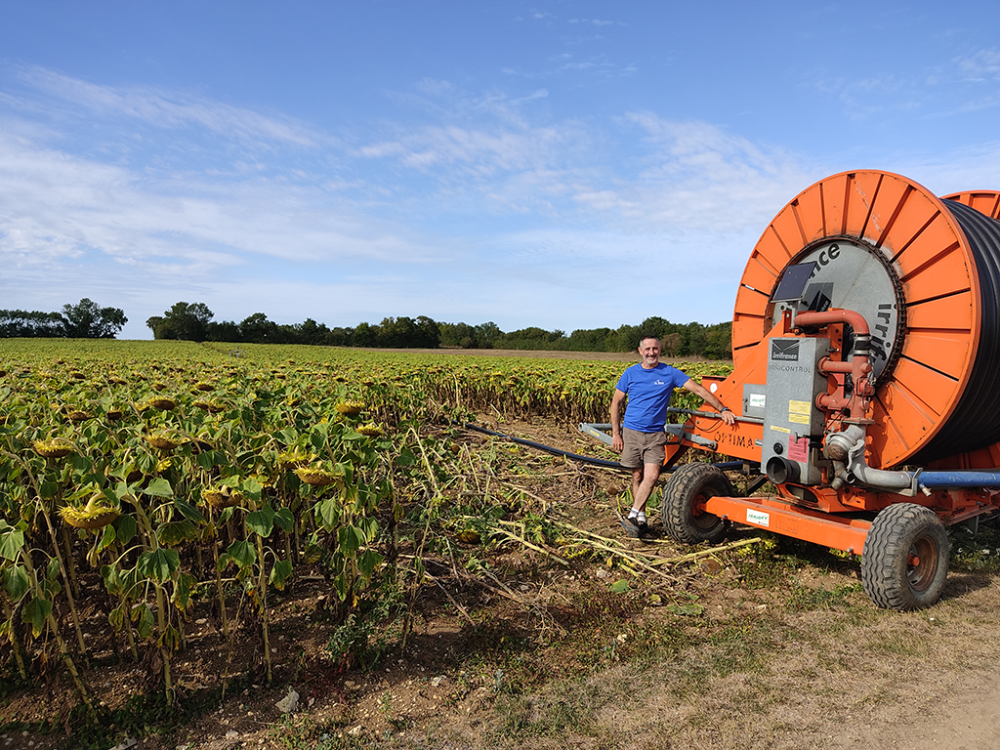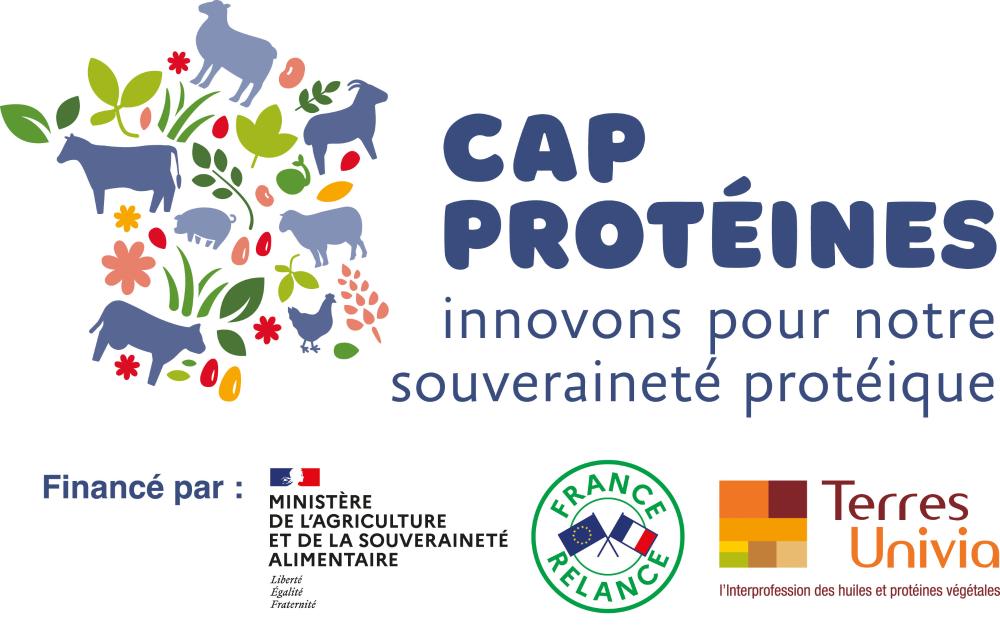Sunflower irrigation: experience of a farmer in Poitou-Charentes
Sunflower irrigation: experience of a farmer in Poitou-Charentes
Laurent Billeaud, a farmer in the Vérines sector in Charente-Maritime, talks about his experience in managing irrigation on sunflower. Laurence Pauly, development engineer at Terres Inovia, shares with us these exchanges carried out within the framework of the irrigator network.

Laurence Pauly : Mr. Billeaud, could you quickly present your farm ?
Laurent Billeaud : I have been a farmer in Vérines since 1988 on a farm that includes 120 ha mainly on shallow and medium groves and 16 ha of marshland. I cultivate mainly soft wheat, peas, sunflower, corn in the marshes, poppy, flax and rapeseed.
Laurence Pauly: What crops can be irrigated and are irrigated on your farm?
Laurent Billeaud: Not all the surface of the farm is irrigable, only 70 hectares with an irrigation installation on the farm since 1996.
I have 15 hectares of hybrid seed wheat that I irrigate in spring. When I grow peas, I irrigate them very exceptionally, mainly because of the lack of time and the quantity of water available. Today, I grow my corn only in the marshes because otherwise I would not have enough water.
Sunflowers are not necessarily grown on irrigable land, even if it is a plus, it all depends on the rotation.
Laurence Pauly: On average, what is the share of sunflower in your crop rotation?
Laurent Billeaud: Sunflower has been grown on the farm since I started, with about 10 to 15 hectares depending on the year. I avoid growing this crop near villages because of the damage caused by goshawks.
Laurence Pauly : Can you explain why you irrigate your sunflower ?
Laurent Billeaud: Summers are dry and my plots have useful reserves that are not sufficient for the needs of certain crops. For sunflower, the yield gain by irrigating is not negligible, since with a few passes, we easily gain 10 q/ha. I irrigate my sunflower since I don't irrigate corn anymore and I position it only in the marshes. It's been about fifteen years.
Laurence Pauly: Does the fact that sunflowers need fewer water turns than corn tip the balance towards one crop rather than another?
Laurent Billeaud : Sunflower needs less water than corn, so yes indeed, it means less work, less constraint, especially during the harvest period.
Laurence Pauly : Studies have shown that irrigation increases the oil content of sunflowers. Is this also a factor that pushes you to irrigate?
Laurent Billeaud : We don't have information on the oil quality criterion at the time of delivery. But if irrigation improves the quality, so much the better!
Laurence Pauly : What is your irrigation strategy on sunflower, triggering, quantity ?
Laurent Billeaud : No precise rule, we adapt to the year. This year, I watered in June to make the most of my nitrogen contribution. I sowed early (beginning of April), I did not need to bring water to make it rise. In average years, I start around the end of June, before flowering.
I make my decisions by observing the crop. I see if the sunflower starts to stress before flowering, then I'll start an irrigation. Sunflowers are easier to manage than corn in the sense that they are more stress tolerant than corn. It can lose some leaves, especially when it has too many. It is then easier to maintain them.
In general, the second pass is done at the end of flowering. If there is a need for a third pass, it is quickly after the second. This year, the needs were quick because of the heat wave.
In terms of quantity, it all depends on what I have available and on the restrictions. In a year without restrictions, I aim for around 30 mm per pass on sunflowers.
Laurence Pauly: Do you play on the earliness of the varieties to spread out your irrigation passages?
Laurent Billeaud : No, I only have one variety, otherwise it complicates the harvest period. My surface is not large enough, if I had more surfaces, yes, perhaps I would use different earlinesses.
Laurence Pauly : What is your level of yield in irrigated and non-irrigated sunflowers?
Laurent Billeaud : I easily obtain 10 q/ha difference between irrigated and non-irrigated sunflower. In an average year, I make 20 q/ha in the dry, never below 18 q/ha. In irrigated, I can reach a maximum of 37 q/ha with an average around 32 q/ha. In a year like 2022, fortunately I irrigated my sunflower!
Even in 2021, a rather wet year, I had a difference of 7-8 q/ha between irrigated sunflower and 2 ha left dry for the follow-up with Terres Inovia. Visually, there was no difference between the two and yet. Overall, I had a yield of 38 q/ha on the plot thanks to 2 rounds of water of 25 mm each.
Laurence Pauly: Why did you choose to participate in Terres Inovia's sunflower irrigators network?
Laurent Billeaud : It is always interesting to exchange information, and also out of curiosity. The trials are always interesting. We sometimes have a tendency to irrigate too early or

The ministries in charge of agriculture and economy cannot be held responsible.